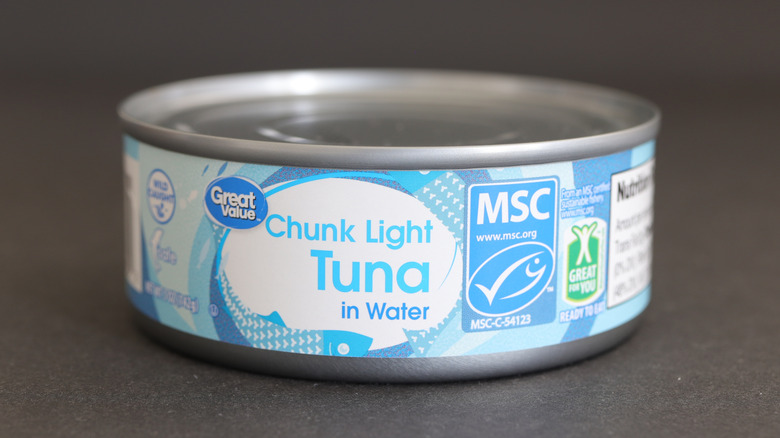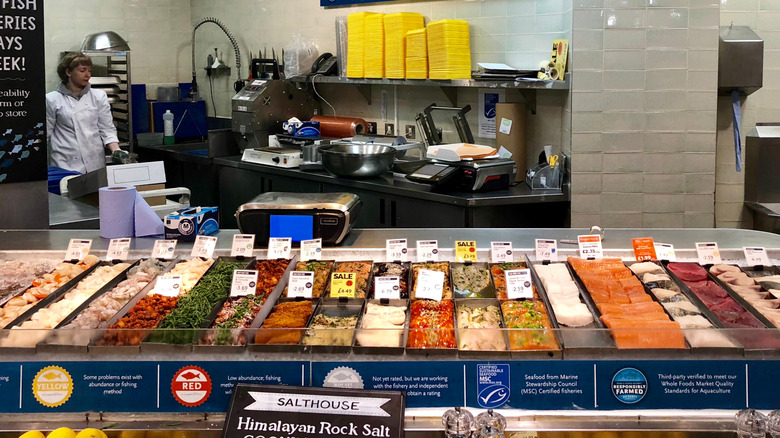What Does That Blue Fish Label On Canned Tuna Mean?
You're scanning the shelves for canned tuna (and avoiding these common canned tuna mistakes), when you notice one with a little blue fish icon — what's that all about, and does it justify the price bump? That logo belongs to the Marine Stewardship Council (MSC), and it signals that the fish inside was wild-caught and sourced sustainably. MSC certification only applies to fisheries that harvest fish from the ocean, not fish farms, so you know you're getting seafood from its natural habitat.
Choosing MSC-certified tuna means supporting fisheries that adhere to strict practices designed to protect fish populations and maintain healthy marine ecosystems. These certifications are crucial, especially as overfishing and habitat destruction continue to escalate. Alarmingly, the level of overfishing has tripled since 1970, with the United Nations Food and Agriculture Organization reporting that by 2024, 37% of monitored fish stocks were classified as overfished. By choosing products with the MSC label, you're helping to ensure that fish populations can thrive for future generations.
The extra cost reflects the high standards these fisheries must meet — and they don't get to relax once certified. They undergo annual audits to ensure they comply with the MSC Standard and are required to be re-certified every five years to maintain their certification. So, when you grab that can with the blue fish label, you're not just making a lunch choice — you're actively supporting efforts to maintain healthy oceans and ensure that wild seafood remains a sustainable option for years to come.
Look for the MSC label on more than just tuna
The MSC blue fish label isn't exclusive to canned tuna, either. You can find it on various seafood products, including frozen fish, packaged fillets, and fresh seafood sold at grocery stores. From familiar favorites like salmon, cod, and haddock to tasty shellfish such as shrimp for making Ina's Garten's twist on a shrimp cocktail, MSC-certified options are out there.
When browsing fresh seafood displays at stores like Whole Foods, keep an eye out for the MSC label. It's worth noting that only about 20% of the global marine catch is MSC-certified or in the process of certification, illustrating that while such fisheries are in the minority, their importance is growing, and there are options for making responsible seafood choices available. Some places may attempt to advertise seafood as sustainable, but without the MSC label, it could be a case of seafood fraud, where products are misrepresented or misidentified as something they are not. The MSC label is a certification that requires fisheries to meet strict sustainability criteria — not just claim it as a marketing tactic. By choosing MSC-certified products, you can be confident you're making a positive impact on the health of fish populations and marine ecosystems.

